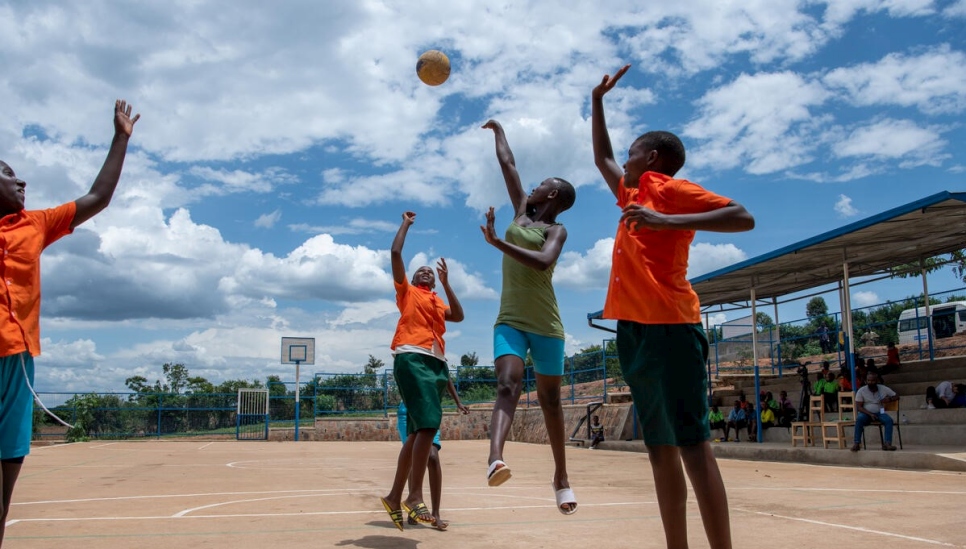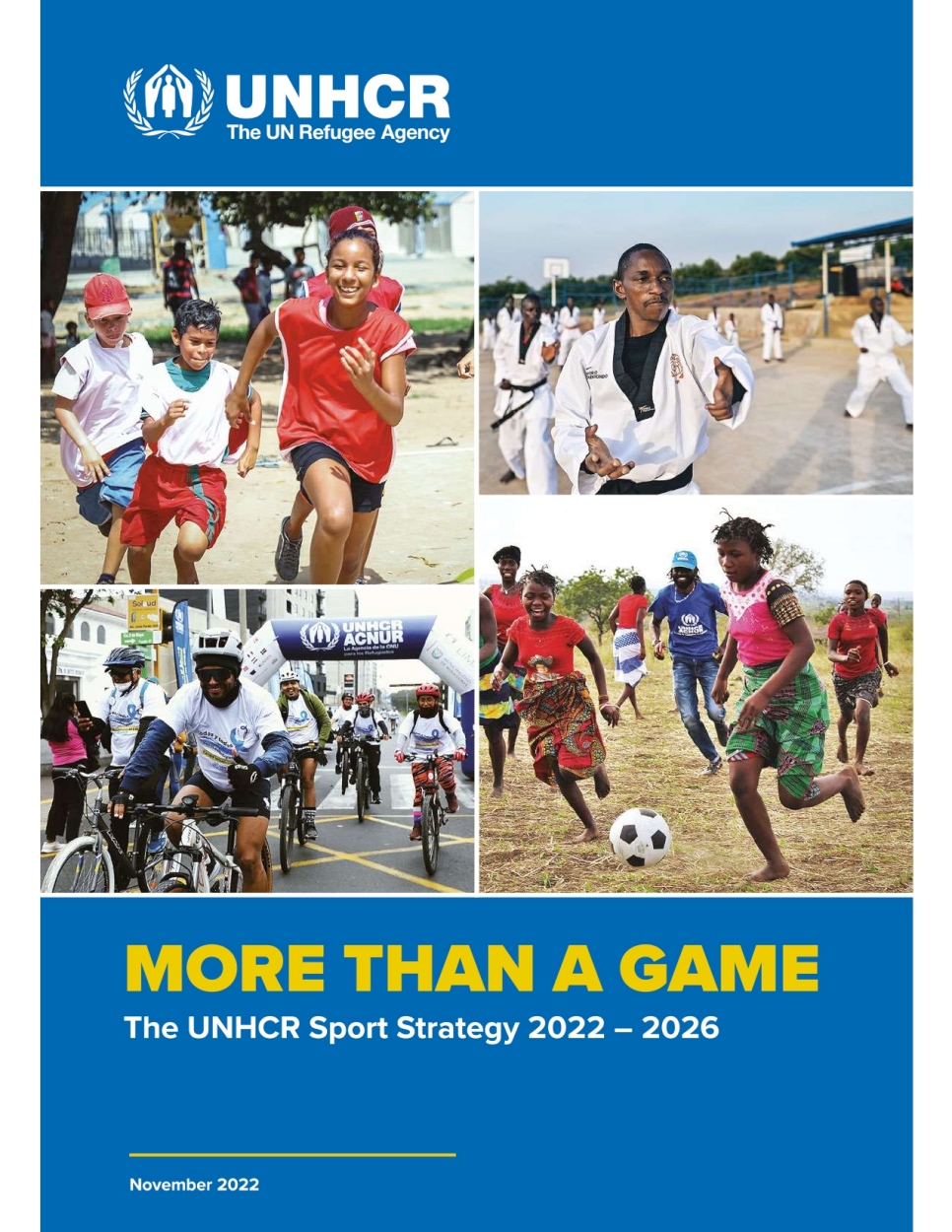UNHCR Sport Strategy 2022 – 2026
UNHCR Sport Strategy – More than a Game
As the title of the UNHCR Sport Strategy suggests, for stateless, refugees and others displaced by conflict and persecution, sport is ‘More than a Game’. For these individuals and communities sport can be transformational; create new opportunities, build friendships, and even establish careers. Understanding the universal language of sport and its power to cross borders and cultures, the Strategy identifies five areas where UNHCR will focus its work. Each area includes an overarching objective and concrete actions to achieve positive outcomes through sport.
1. Sport- and play-based programming
Sport- and play-based activities can contribute to bringing people together and strengthening communities. This area of work will focus on increasing the number of sport- and play-based activities using the Sport for Protection (S4P) approach. Activities will aim to improve psychological well-being, provide opportunities for traditionally marginalized groups such as women and girls, people with disabilities and the elderly, and contribute towards cohesive communities.
2. Elite support
The success of the Olympic and Paralympic refugee teams at Rio 2016 and Tokyo 2020, drew global attention to the talent of refugee para/athletes. This area of work will focus on ensuring that refugees with elite sporting talent can fulfil their potential by being able to participate in training opportunities and competition at the highest level. It will also work to increase access to sport scholarships for refugees to train, study and compete in another country.
3. Communication and advocacy
A mega sporting event can attract millions of spectators from around the world, which makes it a brilliant platform to communicate to new audiences on displacement topics. In this area of work UNHCR will use high-profile sporting events and other sporting opportunities to raise awareness of displacement issues, and work with our sport partners to find opportunities for joint advocacy.
4. Sport diplomacy
The global reach of sport means it has the unique potential to bring communities and nations together. It is also an effective way to improve international relations, facilitate discussion and influence public opinion on refugee issues. In this area of work, UNHCR will use opportunities created by sport to raise awareness of refugee issues and advocate for the support, protection and inclusion of people who have been forced to flee.
5. Resource mobilization
The global for-profit sport industry and their sponsors – including clubs, sport brands, events, professional sportswomen and sportsmen, fans and others – present potential for mobilizing resources. In this area of work, UNHCR will strengthen its partnership with the for-profit sports sector and the private sector to raise essential life-saving funds to meet ever-growing humanitarian needs and fund sports projects for displaced and stateless people.
Read the full strategy here.


